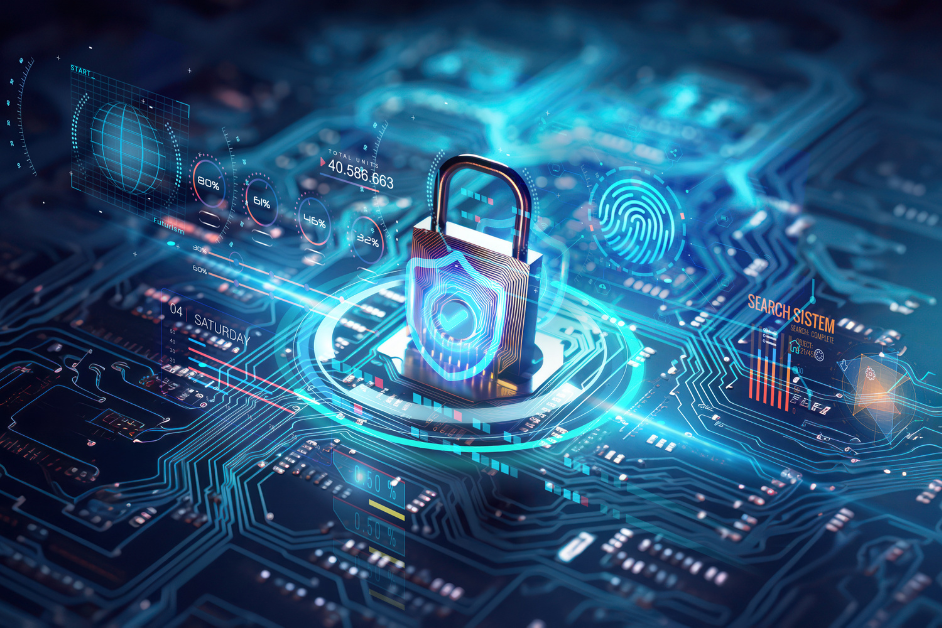Cyber security refers to the practice of protecting systems, networks, and data from digital attacks, unauthorized access, or damage. In today’s interconnected world, where businesses, governments, and individuals rely heavily on digital infrastructure, cyber security is more important than ever. With the rise of cloud computing, mobile devices, and remote working, the scope of cyber threats has expanded significantly. These threats include malware, ransomware, phishing, and data breaches, which can lead to financial loss, reputational damage, and even national security concerns.
A strong cyber security framework involves a combination of technologies, processes, and best practices designed to protect critical information and infrastructure. Firewalls, encryption, intrusion detection systems, and antivirus software are essential tools used to prevent attacks. However, cyber security is not just about technology—it also involves people and policies. Regular employee training, secure password protocols, and clear data handling procedures are vital components of an effective cyber defense strategy.
One of the fundamental principles of cyber security is the concept of confidentiality, integrity, and availability (CIA). Confidentiality ensures that sensitive information is only accessible to authorized users. Integrity safeguards the accuracy and reliability of data, while availability ensures systems and data remain accessible to users when needed. Together, these principles help organizations maintain trust and resilience in the face of growing cyber threats.
Cyber threats come in various forms, each requiring specific defensive measures. Phishing attacks attempt to deceive users into revealing sensitive information through fake emails or websites. Malware can infiltrate devices and networks, causing data loss or system damage. Ransomware locks users out of their systems until a ransom is paid, often crippling operations. In more advanced cases, zero-day exploits take advantage of previously unknown vulnerabilities in software or systems, making them difficult to detect and counter.
To combat these threats, businesses and individuals must adopt a proactive approach to cyber security. This includes regular software updates, robust user authentication methods, continuous monitoring of network activity, and frequent data backups. Endpoint security, multi-factor authentication, and secure coding practices also play crucial roles in maintaining system integrity. Cyber security policies should be tailored to an organization’s size, structure, and industry-specific needs.
Cyber security also plays a pivotal role in regulatory compliance and legal protection. Many countries and regions have enacted laws and frameworks requiring organizations to protect personal data and report data breaches. Regulations such as GDPR (General Data Protection Regulation) in Europe and HIPAA (Health Insurance Portability and Accountability Act) in the U.S. set specific standards for data privacy and security. Non-compliance can result in substantial fines and legal actions, further underlining the importance of a sound cyber security strategy.
In addition to protecting data, cyber security helps safeguard reputation and customer trust. In an era where news of data breaches can spread instantly across social media and news platforms, organizations must work hard to maintain public confidence. Demonstrating a strong commitment to security through certifications, transparency, and timely incident responses can help build long-term customer loyalty.
The rise of technologies such as Artificial Intelligence (AI) and Machine Learning (ML) has introduced new ways to strengthen cyber security. These technologies can analyze vast amounts of data to identify unusual patterns or anomalies that may indicate a cyber attack. AI-driven threat detection systems can respond to incidents faster than human analysts, significantly improving response times and reducing damage. However, cyber criminals are also using AI to launch more sophisticated attacks, creating a continuous battle between offense and defense.
Another area gaining attention is cyber security for the Internet of Things (IoT). With millions of connected devices used in homes, industries, and public infrastructure, the IoT landscape presents unique security challenges. Many IoT devices lack robust security features, making them vulnerable to attacks. Ensuring secure communication protocols, regular firmware updates, and proper device management is essential to prevent these devices from becoming entry points for hackers.
As remote work becomes a norm, endpoint security has gained renewed importance. Employees often access sensitive company data from personal devices or unsecured networks. Organizations must implement policies that include VPN usage, secure file sharing platforms, and device-level security to protect against data leaks and intrusions. Educating remote workers about phishing scams, safe browsing habits, and device hygiene further enhances security.
The concept of cyber hygiene refers to routine practices and precautions that users should take to protect their digital environments. This includes regularly changing passwords, avoiding suspicious links, securing Wi-Fi networks, and keeping devices updated. These simple yet powerful actions can significantly reduce the risk of falling victim to common cyber threats.
Cyber security is a shared responsibility. While organizations invest in robust systems and tools, individual users must also be vigilant and informed. Parents must teach children about online safety, educational institutions should integrate digital literacy into their curriculum, and public awareness campaigns must promote safe online behavior. Governments and private sectors must collaborate to create cyber-safe communities.
Source - https://www.marketresearchfuture.com/reports/global-cyber-security-market-875
Cyber security is an essential pillar of the digital age, ensuring the safety, integrity, and reliability of information systems across the globe. As technology continues to evolve, so will cyber threats, making it imperative for everyone—individuals, businesses, and governments—to stay ahead through awareness, innovation, and collaboration. The future of cyber security lies in our collective ability to adapt, educate, and fortify the digital spaces we depend on.



